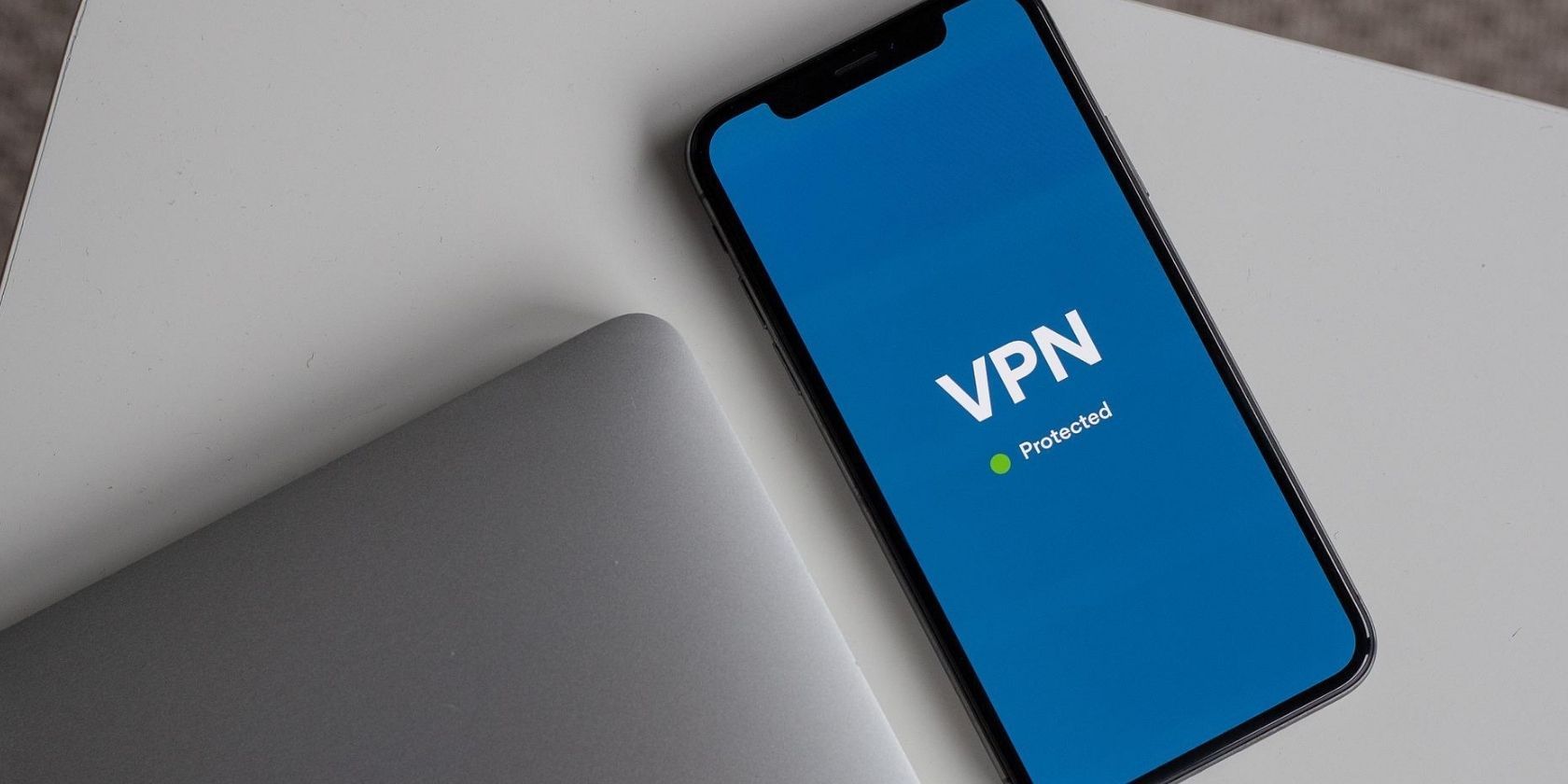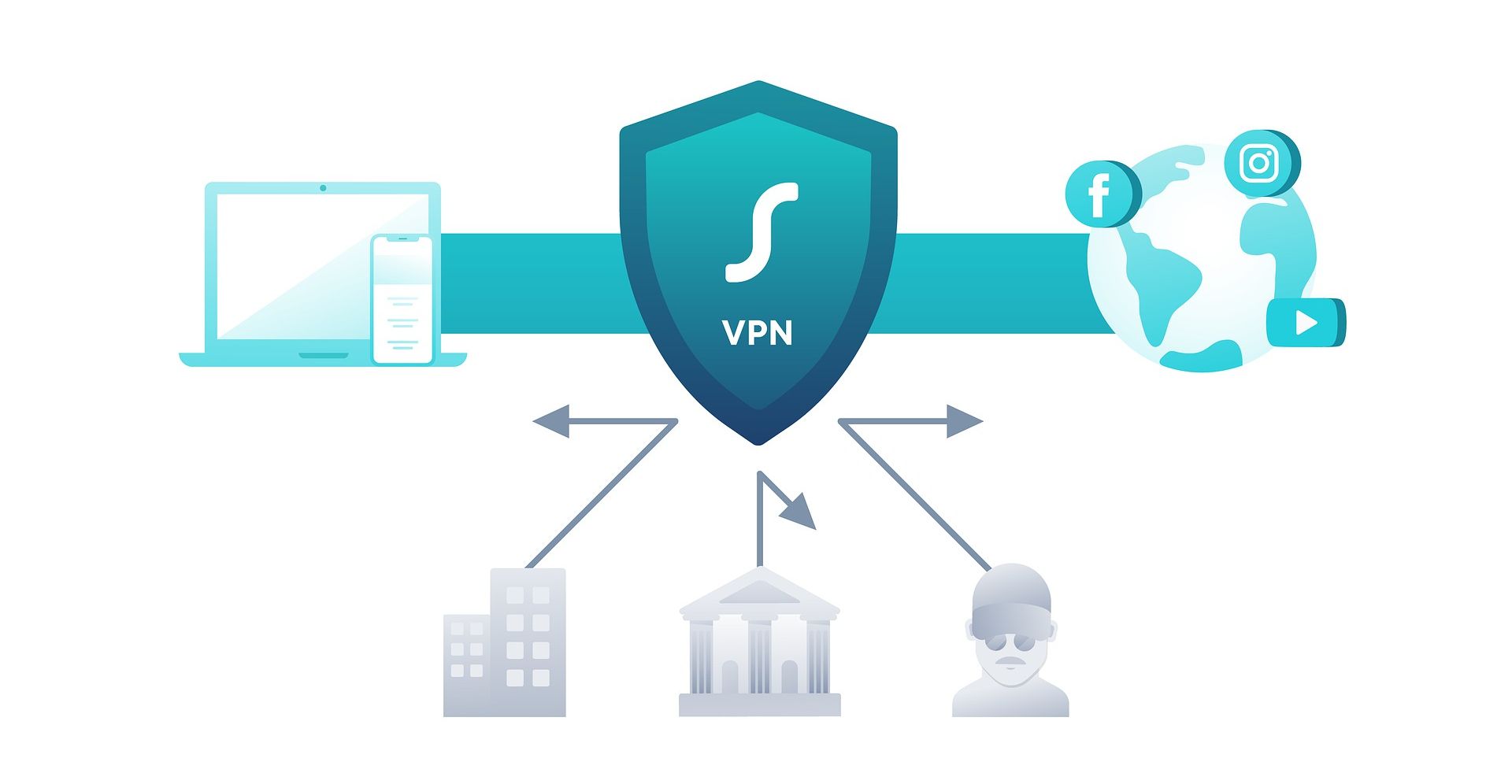While VPNs can provide you with increased levels of security while online, the way in which they work can have a detrimental effect on your internet speed. While many notice a decrease in their connection speeds when using a VPN, others have actually seen improvements in certain cases.
So, can a VPN really increase your interest speed, or is this just a myth?
Why Do VPNs Affect Connection Speeds?
If you’re not very familiar with how VPNs work, you may be wondering why a security protocol would have any kind of effect on one’s internet speed. So, let’s quickly go over why exactly VPNs can interfere with your online connection.
When you use a VPN, you’re sending your internet traffic through a remote server for encryption. It’s this encryption process that can increase the time it takes for your device to connect to the internet. When individuals use double VPNs, this time can increase further, as even more servers need to be reached before you connect to your Internet Service Provider (ISP).
So, if the encryption process always has to happen when you use a VPN, your connection speed will always be negatively affected, right? Not necessarily. Some people actually experience a boost in their internet speed when using a VPN. This is often the case with online gamers, as VPNs can help them overcome bandwidth throttling.
Bandwidth Throttling and VPNs
Bandwidth throttling (also known as ISP throttling) involves your ISP intentionally decreasing your internet speed. This can be done for an array of different reasons, including reducing congestion at peak times, when the number of people using the internet, and therefore ping times, increase. Generally, it’s those carrying out bandwidth-intense activities that have to deal with bandwidth throttling the most frequently.
For example, if you do a lot of streaming, video calling, or gaming online, you may be subject to bandwidth throttling on a regular basis without even realizing it. This can be both frustrating and inconvenient, and can make your internet experience less enjoyable. But VPNs can come to the rescue in such scenarios.
What’s important to remember is that VPNs can totally mask your internet activity, so that your ISP has no idea what you’re doing online. Because of this, there’s no way for your ISP to know whether you’re carrying out a bandwidth-intense activity, so it’s far less likely that you’ll have to deal with bandwidth throttling.
However, if you’re not subject to bandwidth throttling in the first place, it’s unlikely that a VPN will increase your connection speed. Different circumstances will give way to different outcomes. So, let’s put a VPN to the test and see what happens!
Testing The Theory
We’ll be doing six different speed tests to see how a VPN affects connection speeds at three different times during the day. We’ll be testing at 10 AM, 1 PM, and 7 PM, to span across different peak and off-peak times. Then, we’ll test the internet speed while streaming and gaming, with and without the use of a VPN.
Before we get into the test itself and the results, there’s one more important factor to note: the difference between upload and download speeds. The download speed refers to the rate at which data is being transmitted from the internet to your device, and the upload speed refers to the rate at which data is being transmitted from your device to the internet.
For online gamers, the upload speed is the most important. Online gaming requires each user to constantly send data from their device to the internet. When it comes to streaming, on the other hand, the download speed is more of a priority, as you’re receiving content on your device from the internet.
Below are the download and upload speeds received during each test (carried out using speedtest.net).
The 10 AM Tests
| Download Speed (Mbps) | Upload Speed (Mbps) | |
| No VPN, no specific activity | 69.02 | 18.44 |
| VPN, no specific activity | 48.79 | 17.17 |
| No VPN, streaming | 69.35 | 18.33 |
| vpn streaming | 58.34 | 16.88 |
| no vpn gaming | 70.23 | 18.21 |
| vpn gaming | 50.79 | 16.24 |
As you can see, the use of a VPN unfortunately did not have any kind of positive effect on connection speeds when tested at 10 AM. In fact, in some cases, the use of a VPN significantly decreased the internet speed, as seen when tested while playing an online game. A decrease of almost 20 Mbps can take a huge toll on your online experience, so it seems that the added benefit of security when using a VPN certainly comes with a catch in this case.
The 1PM Tests
| Download Speed (Mbps) | Upload Speed (Mbps) | |
| No VPN, no specific activity | 60.42 | 18.22 |
| VPN, no specific activity | 58.66 | 17.18 |
| No VPN, streaming | 70.56 | 18.23 |
| vpn streaming | 60.78 | 16.95 |
| no vpn gaming | 69.33 | 18.04 |
| vpn gaming | 38.95 | 16.31 |
During the 1 PM tests, we received similar results. The use of a VPN clearly decreased the upload and download speeds. We saw a drop-off of almost 10 Mbps while using a VPN to stream on Netflix, along with a shocking drop of over 30 Mbps when using a VPN to game online. But the upload speed only dropped by 1.73 Mbps in this case, which isn’t terrible.
However, because 1 PM is considered an off-peak internet usage time, it’s unlikely that bandwidth throttling was being used at all, so it’s no surprise that we’re seeing drops in connection speeds whenever the VPN is activated.
The 7PM Tests
| Download Speed (Mbps) | Upload Speed (Mbps) | |
| No VPN, no specific activity | 70.87 | 18.35 |
| VPN, no specific activity | 63.87 | 16.03 |
| No VPN, streaming | 65.78 | 18.38 |
| vpn streaming | 62.57 | 16.41 |
| no vpn gaming | 67.61 | 17.85 |
| vpn gaming | 19.89 | 14.95 |
7 PM is known as a peak usage time on the internet, where a lot more people are online compared to the morning or afternoon. This is an example of when bandwidth throttling could be used by your ISP to reduce congestion, and when a VPN could help counteract this.
However, our results show that the use of a VPN unfortunately did not positively influence internet speed. In fact, a pretty shocking drop-off of over 47 Mbps was seen when switching to a VPN while online gaming. A decrease in upload speed while gaming using a VPN was also experienced.
This suggests that bandwidth throttling was not taking place at the time of the test, as we’d likely see an increased speed while using the VPN if this were the case.
Do VPNs Slow Down Your Internet?
It seems that, during each test we carried out, bandwidth throttling likely wasn’t taking place. This is why we saw the expected drop in internet speeds whenever a VPN was being used, rather than any kind of boost.
So, if your network isn’t dealing with any kind of bandwidth throttling, it’s unlikely that using a VPN will help at all in terms of connection speeds. If no kind of intentional restriction is being placed on your bandwidth in the first place, then there’s not much a VPN can do to help when you’re streaming, gaming, or carrying out any other kind of bandwidth-intensive activity online.
VPNs Are Great for Security, But Not So Great for Connection Speeds
You can successfully mask your IP and your online activity when using a VPN, but this will usually come with a catch. More often than not, the use of a VPN will have a negative effect on your connection speeds, and this is something you should keep in mind before signing up for any kind of VPN service (especially if your connection speeds are already quite low).
Read Next
About The Author


